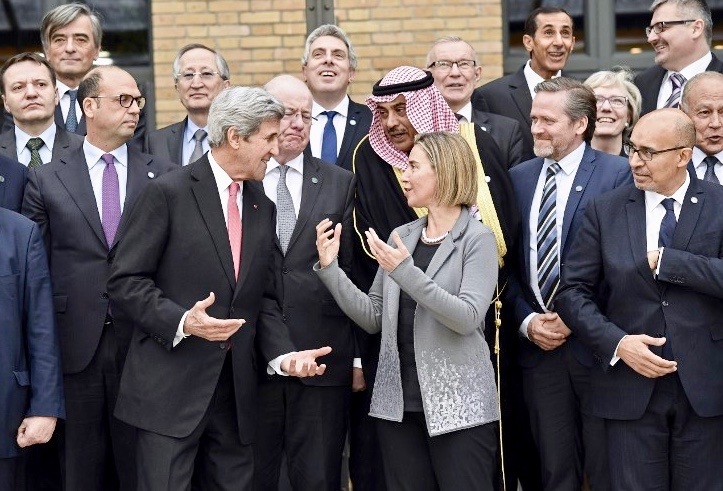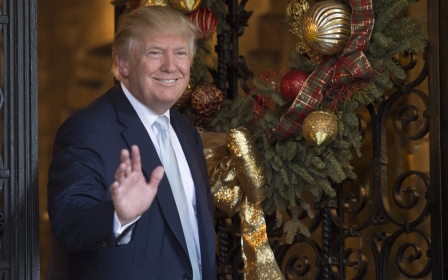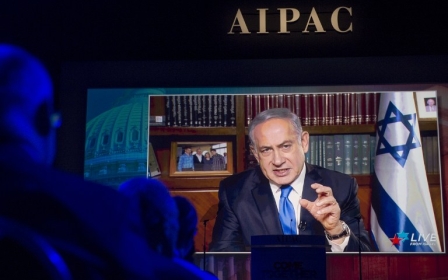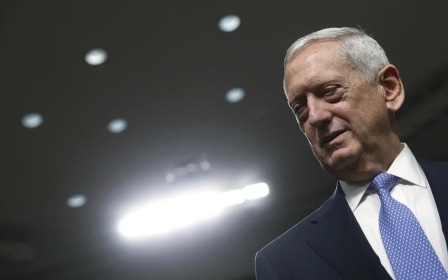Paris summit warns against 'unilateral steps' on Middle East conflict

A conference for peace in the Middle East on Sunday warned Israel and the Palestinians against "unilateral steps" on Jerusalem and borders that could threaten a negotiated solution to their seven-decade conflict.
About 70 countries attending the Paris talks called on the two sides to avoid steps that prejudge the outcome of negotiations on final status issues, including among other things, Jerusalem, borders, security and refugees.
The participants in the conference "will not recognise" such steps, they said.
They also said that the basis for the negotiations should be the 1967 borders, before Israel occupied the West Bank and East Jerusalem, French Foreign Minister Jean-Marc Ayrault told a news conference.
France organised the gathering to reaffirm global support for a Palestinian state existing alongside an Israeli state - a scenario the Palestinians fear could be jeopardised by Donald Trump's incoming US administration.
Neither Israel nor the Palestinians attended the conference, which the Palestinians supported but Israeli Prime Minister Benjamin Netanyahu dismissed as "futile".
Britain cited "reservations" over the conference and refused to sign a joint statement that called for a negotiated two-state solution to the Israeli-Palestinian conflict.
A Foreign Office spokesman said the British had "particular reservations" about the meeting in Paris taking place without Israeli or Palestinian representatives, "just days before the transition to a new American president".
Britain had therefore attended the talks as an observer only, the spokesman said.
US Secretary of State John Kerry, who attended the talks on his farewell tour, said he had negotiated to prevent Israel being treated unfairly.
"We did what was necessary to have a balanced resolution," Kerry told reporters.
Ayrault said that the participants had set out the 1967 frontiers as the basis for final-status negotiations.
The conference comes as Trump's campaign pledge to move the US embassy in Israel from Tel Aviv to Jerusalem sparks fears of a major escalation in the Middle East.
Ayrault said such a move, which would support Israel's claim that Jerusalem is its capital, would be a "provocation".
Palestinian leader Mahmoud Abbas has warned it would "destroy" peace efforts.
The Palestinians regard Israeli-annexed East Jerusalem as the capital of their future state, while Israel proclaims the entire city as its capital.
The status of the city is one of the thorniest issues in the conflict.
"When you are president of the United States, you cannot take such a stubborn and such a unilateral view on this issue. You have to try to create the conditions for peace," Ayrault told France 3 TV.
President Francois Hollande told the gathering that the prospect of two independent states coexisting side-by-side - seen as increasingly elusive - was "not the dream of yesterday's system.
"It remains the goal of the entire international community," he said.
Netanyahu, who insists only direct talks with the Palestinians can bring peace, dismissed the Paris meeting as "a last gasp of the past".
Both Netanyahu and Abbas have been invited to meet with Hollande to discuss the conclusions of the Paris talks.
Abbas is expected to travel to Paris in the coming weeks but Netanyahu has rejected the offer, French diplomats said.
The conference was mainly symbolic, but comes at a crucial juncture for the Middle East, five days before Trump is sworn in as president.
Trump has said "there's nobody more pro-Israeli than I am," and his choice for ambassador to Israel, David Friedman, is a hardliner who says he looks forward to working from "Israel's eternal capital, Jerusalem".
Israel, which is still seething over a critical UN resolution last month, had voiced fears the Paris meeting could produce anti-Israel measures at the Security Council - before Trump takes over.
EU foreign ministers are set to discuss the conference's conclusions on Monday, EU sources said.
It was uncertain whether they would issue a statement, with Britain and some central European countries reluctant to upset the incoming Trump administration, a European diplomat said.
Israeli-Palestinian efforts have been at a standstill since a US-led initiative collapsed in April 2014.
Tensions have spiralled recently after a wave of Palestinian attacks and inflammatory rhetoric on both sides.
Israel's ongoing expansion of settlements on occupied Palestinian territory is also seen as a major obstacle to a resolution.
More than 400,000 Israelis live in West Bank settlements considered illegal by the UN.
On Saturday, Abbas warned that relocating the US embassy to Jerusalem could "destroy the prospects of any political process" and fuel extremism.
The Paris conference comes less than a month after a landmark UN Security Council resolution criticising Israeli settler activity.
The vote passed after the Obama administration - in a parting shot at Netanyahu - took the rare step of abstaining rather than using its veto to protect Israel.
Kerry said at the time that Israeli settlement policy was leading towards "one state," with "millions of Palestinians permanently living in segregated enclaves".
Middle East Eye propose une couverture et une analyse indépendantes et incomparables du Moyen-Orient, de l’Afrique du Nord et d’autres régions du monde. Pour en savoir plus sur la reprise de ce contenu et les frais qui s’appliquent, veuillez remplir ce formulaire [en anglais]. Pour en savoir plus sur MEE, cliquez ici [en anglais].




